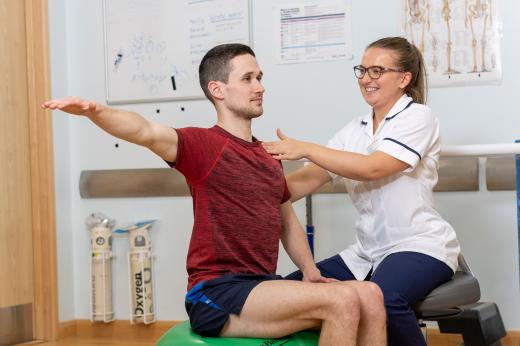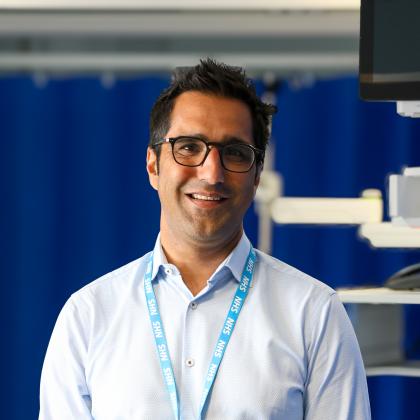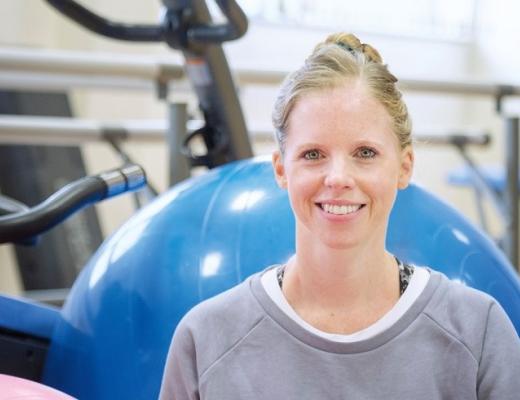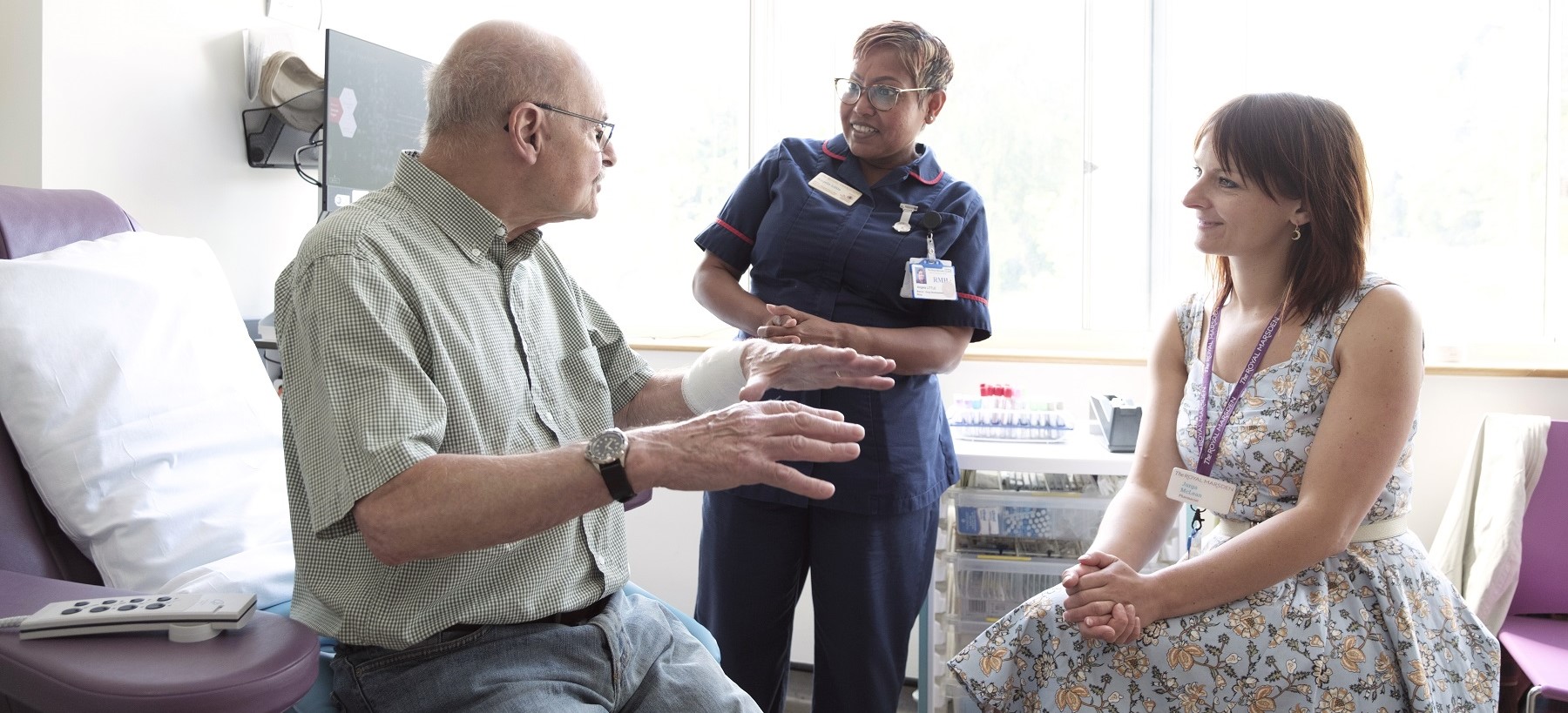Why is prehabilitation so important during cancer treatment? A Q&A with two experts from The Royal Marsden
Thanks to funding from The Royal Marsden Cancer Charity, clinical specialists can help patients face cancer as prepared as possible, using prehabilitation strategies to suit their needs.

Although prehabilitation doesn’t treat cancer itself, it plays a vital role in supporting patients’ physical and emotional health.
We spoke with Dr Shaman Jhanji, Consultant in Anaesthetics and Intensive Care Medicine, and Siobhan Cowan-Dickie, Head of Physiotherapy at The Royal Marsden. These two experts share their insights on the powerful impact of prehabilitation, and why continued funding is essential to significantly improve chances of patient recovery.

Dr Jhanji - What is prehabilitation?
“Prehabilitation prepares patients for cancer treatment both physically and mentally before it starts and aims to continue through the treatment pathway. This could mean structured exercise support – for example, to help a patient build up their strength – advice on nutrition, or mental wellbeing guidance. The aim is to prepare them for surgery, chemotherapy or radiotherapy so they have the best recovery possible.”
What are the benefits of prehabilitation for patients?
“The evidence shows that improving the physical fitness and mental health of patients before treatment can reduce the adverse effects of cancer treatment. Patients who have undergone prehabilitation are more likely to:
- Have better treatment choices
- Leave hospital sooner after surgery
- Cope better with treatment side effects
- Have better long-term health.
“We are grateful to supporters of the Charity for funding specialists in occupational therapy, physiotherapy and dietetics, as well as a specialist exercise instructor, who all play a vital role in supporting our patients and helping to improve their quality of life and recovery.”
How is prehabilitation integrated into the care provided at the hospital?
“Patients seen in the clinic are referred to colleagues in dietetics, physiotherapy and occupational therapy for tailored support, which is integrated into their treatment pathway.
“For example, some lymphoma, lung, brain and gynaecological cancer patients needing nutritional support are seen at the same time as their radiotherapy appointments, to reduce multiple hospital visits and ensure effective management of their nutrition alongside any symptoms from treatment.”
What research is The Royal Marsden carrying out?
“Prehabilitation for cancer patients isn’t currently available nationally across the NHS. I chair the National Cancer Prehabilitation Collaborative, a network of the UK’s leading prehabilitation specialists led by The Royal Marsden. We’re working to deliver research that will help us develop a prehabilitation service to provide effective, personalised support for patients across the country. The research in progress covers areas like wearable technologies for patients and personalising care as well as evaluating existing cancer prehabilitation services across the UK. It’s hugely exciting.”
Siobhan Cowan-Dickie, Head of Physiotherapy at The Royal Marsden, told us about her direct experience supporting patients through prehabilitation.
Can you give an example of how you’ve seen prehabilitation improve patient outcomes?

“We recently had feedback from a lady in her seventies who needed to undergo ovarian cancer treatment; she was to have chemotherapy first to shrink the tumour before her surgery. Chemotherapy itself can cause side effects that make it difficult to maintain or improve your fitness. But with the help of our team, she was able to stay active, and she also received support from the dietetics team as well as psychological support. She fed back to us that she felt really prepared for her surgery. Her surgery was a success and her stay in hospital was reduced due to her prehabilitation. Since then, her recovery has been much better than she anticipated. The patient said:
The prehabilitation team have been so great in improving my fitness over the past few weeks between my chemotherapy. Their encouragement and advice have been such a positive aspect for me in this traumatic time. They really made it possible for me to have my surgery.
Final thoughts from Siobhan:
“It means so much to me and all the physiotherapists at The Royal Marsden that we can support patients throughout their cancer journey and help them stay as fit as possible before, during and after their treatment. It is such a rewarding area to work in - to know that people are getting back to doing the things they love.
“I’d like to say a big thank you to all the supporters of The Royal Marsden and The Royal Marsden Cancer Charity. With your generous support we can continue delivering and expanding our services.”
Support us today
The National Cancer Prehabilitation Collaborative was made possible thanks to Andy and Susan Bond, and Charles Wilson CBE and Dr Rowena Olegario’s generous support of The Royal Marsden Cancer Charity.
The Prehabilitation service is continually growing and improving thanks to funding from The Royal Marsden Cancer Charity.
Your support means that patients can have an improved overall care experience, which increases their chances of a better quality of life post treatment. Find out more about how you can support us today.

